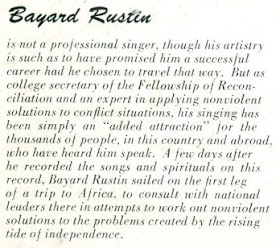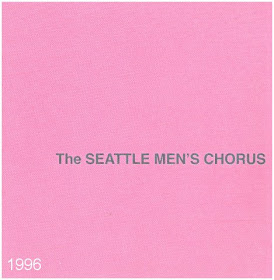I just have to share the news that this week it was
announced that I was one of the winners of a major award, given by The
Committee on LGBT History. I am honored and very, very pleased.
♪ ♫♪ ♫♪♪ ♫♪ ♫♪♪ ♫♪ ♫♪♪ ♫♪ ♫♪♪ ♫♪ ♫♪♪ ♫♪ ♫♪
From their announcement:
The Committee on Lesbian, Gay, Bisexual, and Transgender
History (CLGBTH) proudly announce the winners of the Allan Bérubé Prize, which
recognizes outstanding work in public or community-based lesbian, gay, bisexual,
transgender, and/or queer (LGBTQ) history. This award is given in even-numbered
years, covering work completed during the previous two years. Scholarly
committees determine winners after an open nomination process. The CLGBTH
received 11 submissions for the Bérubé Prize, and that prize is underwritten by
The GLBT Historical Society in San Francisco.
Allan Bérubé Prize 2012:
CO-WINNERS:
Out in Chicago, produced by Chicago History Museum,
curated by Jill Thomas Austin and Jennifer Brier, staffed by Jessica Herczeg-Konecny,
Emily H. Nordstrom, Daniel Oliver, Anne E. Parsons, Mark Ramirez, and Morgan W.
Valenzuela.
The Out in Chicago project team’s innovative installation
for the Chicago History Museum worked extensively over a three-year period with
community members to, as they describe it, “create an exhibition that recasts
the city's LGBT and urban histories thematically.” It was open to the public
from May 2011 to March 2012. Out in Chicago is a lively exhibit that centers
the experiences of individuals—especially African Americans, Latinos,
transgender people, and the leather community—through four sections: family,
home, community, and activism. Extensive use of oral history helped the
curatorial team to create an impressively inclusive portrayal of the city's
many and varied queer peoples. New uses of archival and other objects, as well
as innovative social media sources, also bring the exhibit to new audiences.
Out in Chicago not only is one of the first exhibitions of its kind in a
mainstream museum, but also showcases the possibilities of collaboration among
institutions and community partners.
Queer Music Heritage is a labor of love of JD Doyle, who
for over a decade has worked to “preserve and share the music of queer
culture.” Doyle produces and hosts an engaging and informative monthly radio
show and maintains an innovative user-friendly website that features a full
audio archive of the program, transcribed interviews, and a wide range of
visual materials. Among the many historical themes explored are the music of
the “pansy craze” of the 1920s and 1930s, the Women’s Music Movement, and the music
and politics of Queer Nation. Site content, impressive in its volume and scope,
is organized to optimize access by researchers and educators. One noteworthy
resource is “Queer Music History 101,” an exhaustively researched two-hour
audio course covering the history of LGBT music from 1925-1986. Queer Music
Heritage exposes diverse audiences to an important theme in LGBT history and
encourages new research avenues.
♪ ♫♪ ♫♪♪ ♫♪ ♫♪♪ ♫♪ ♫♪♪ ♫♪ ♫♪♪ ♫♪ ♫♪♪ ♫♪ ♫♪
About the LGBTH:
The Committee on Lesbian and Gay History was founded in
1979 to promote the study of homosexuality in the past and present by
facilitating communication among scholars in a variety of disciplines working
on a variety of cultures. The name of the committee was changed to Committee on
Lesbian, Gay, Bisexual, and Transgender History in January 2009.
About the Allan Bérubé Prize:
The Allan Bérubé Prize recognizes outstanding work in
public or community-based lesbian, gay, bisexual, transgender, and/or queer
history. It is awarded in even-numbered years, covering works from the previous
two years. Allan Bérubé (1946 – 2007) was the author of “Coming Out Under Fire,”
and was a well-respected historian, activist, scholar, and a self-described “community-based”
researcher.
♪ ♫♪ ♫♪♪ ♫♪ ♫♪♪ ♫♪ ♫♪♪ ♫♪ ♫♪♪ ♫♪ ♫♪♪ ♫♪ ♫♪
And this is a good time to share a video of my archives.
It was filmed by Sean Kagalis when he and two other artists stayed at my house
this month. Sean begged me to let him do the video, as he just wanted to share
the experience of walking into that room.

















































